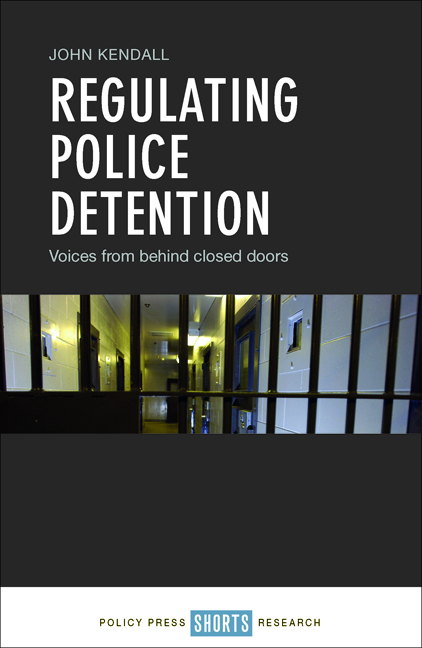Book contents
Foreword
Published online by Cambridge University Press: 09 April 2022
Summary
This is a unique piece of research. John Kendall is the first person to have made a systematic study of custody visiting. He started by working as a volunteer visitor without any plan to write about it. But he found the experience frustrating and wondered if he was actually doing any good. So he decided to find out, by analysing the scheme in the course of a PhD thesis. He looks at the origins of the custody visiting system and how it works in reality, interpreting his findings through the lens of theories of power, policing and regulation. This fascinating book is the result. His findings are insightful and sometimes shocking. But he shows that they should not be surprising if we see them in the context of modern scholarship into police practices and the insufficient regulation of the police. John remains an optimist, however, and believes that the visiting scheme can be reformed so that it can, at least in part, achieve its original aim of holding the police to account. If this could be done, we would see fewer suspects mistreated – because some still are – and perhaps fewer deaths in custody. But we need policy makers and politicians to listen, and the police to acknowledge that they still exercise almost total control over not just suspects, but everyone else, including lawyers and visitors, who enter those ‘total institutions’ that we call police stations. It's a tall order, but it's not impossible. Read this book, and join John in calling for change.
- Type
- Chapter
- Information
- Regulating Police DetentionVoices from behind Closed Doors, pp. xiii - xivPublisher: Bristol University PressPrint publication year: 2018

